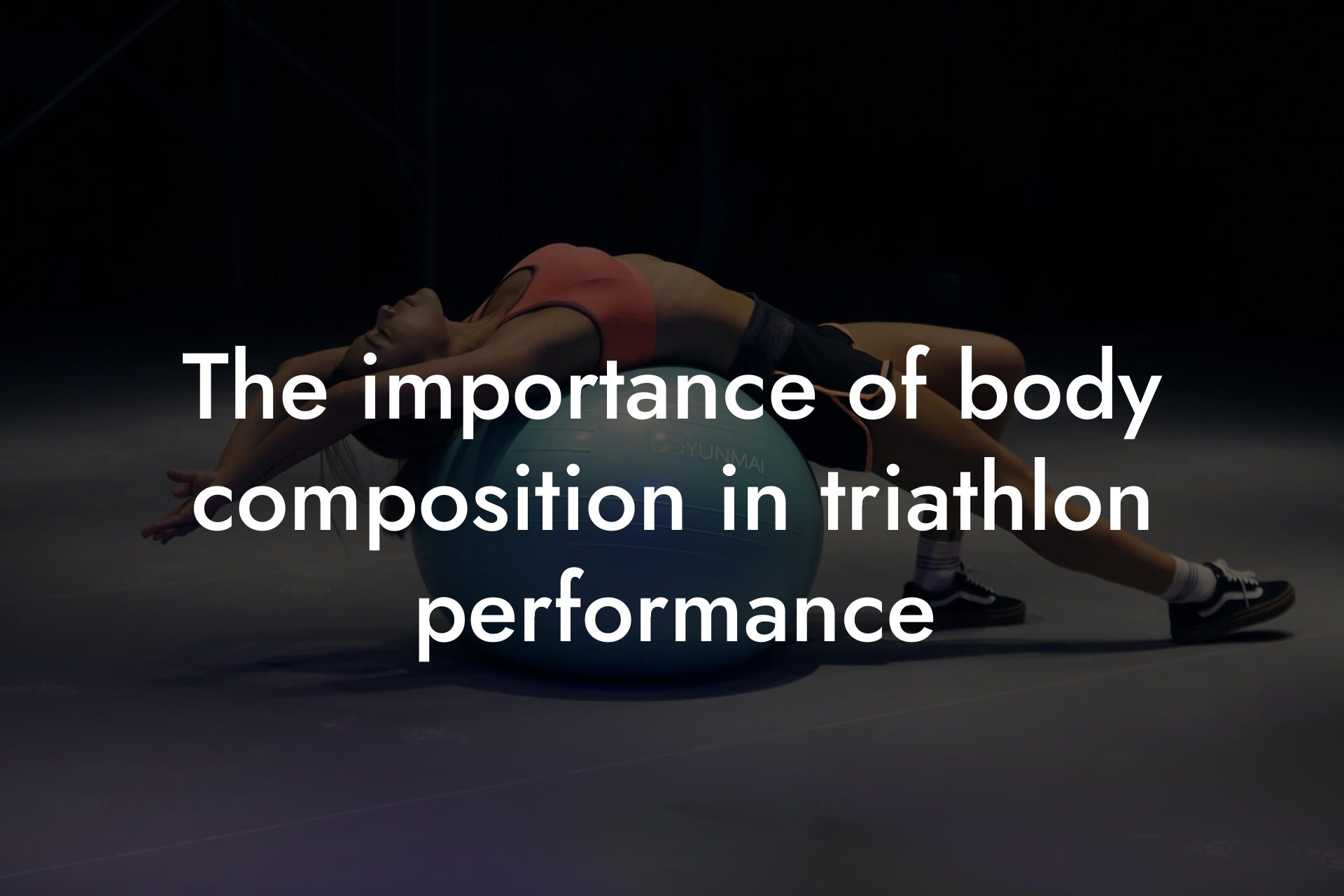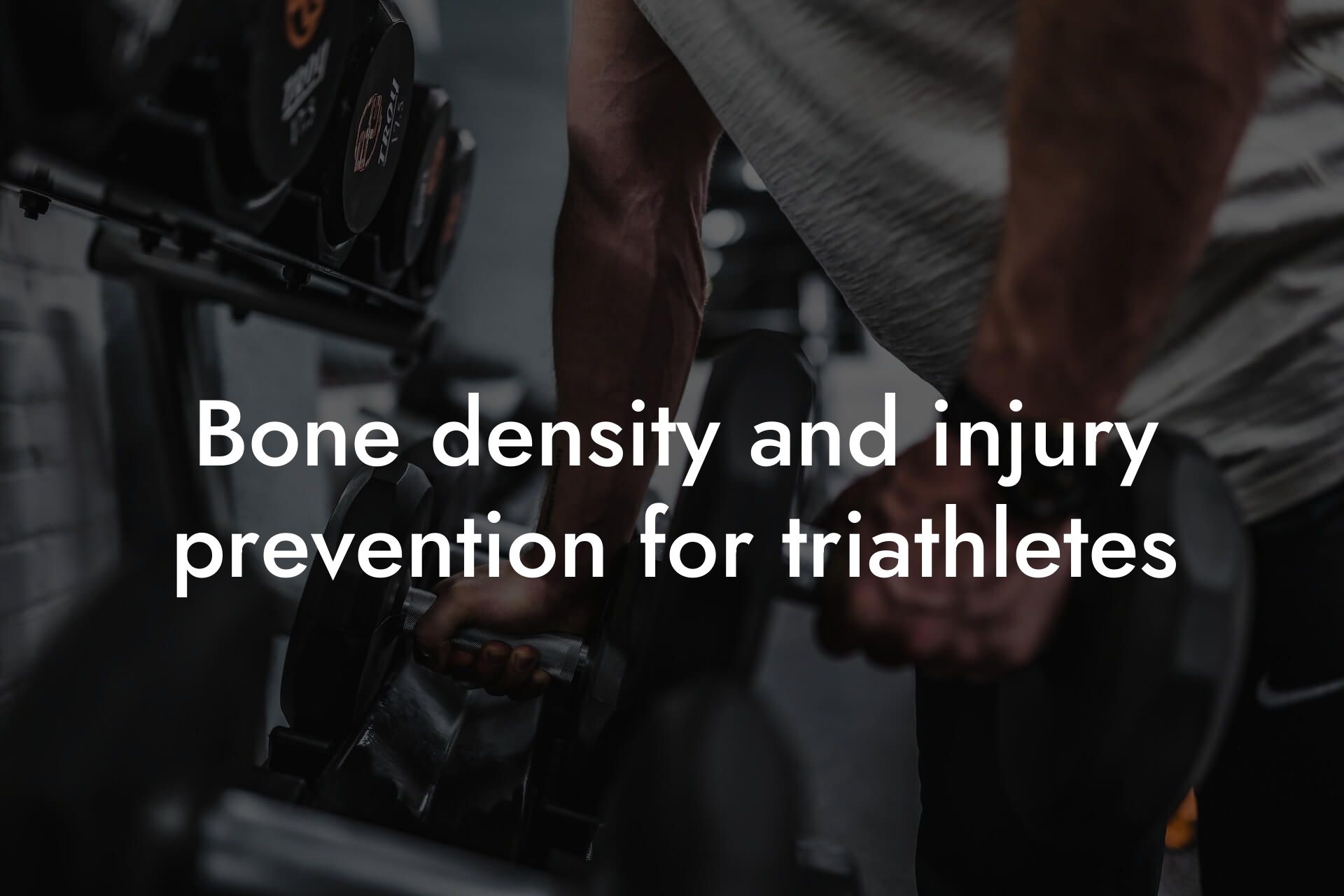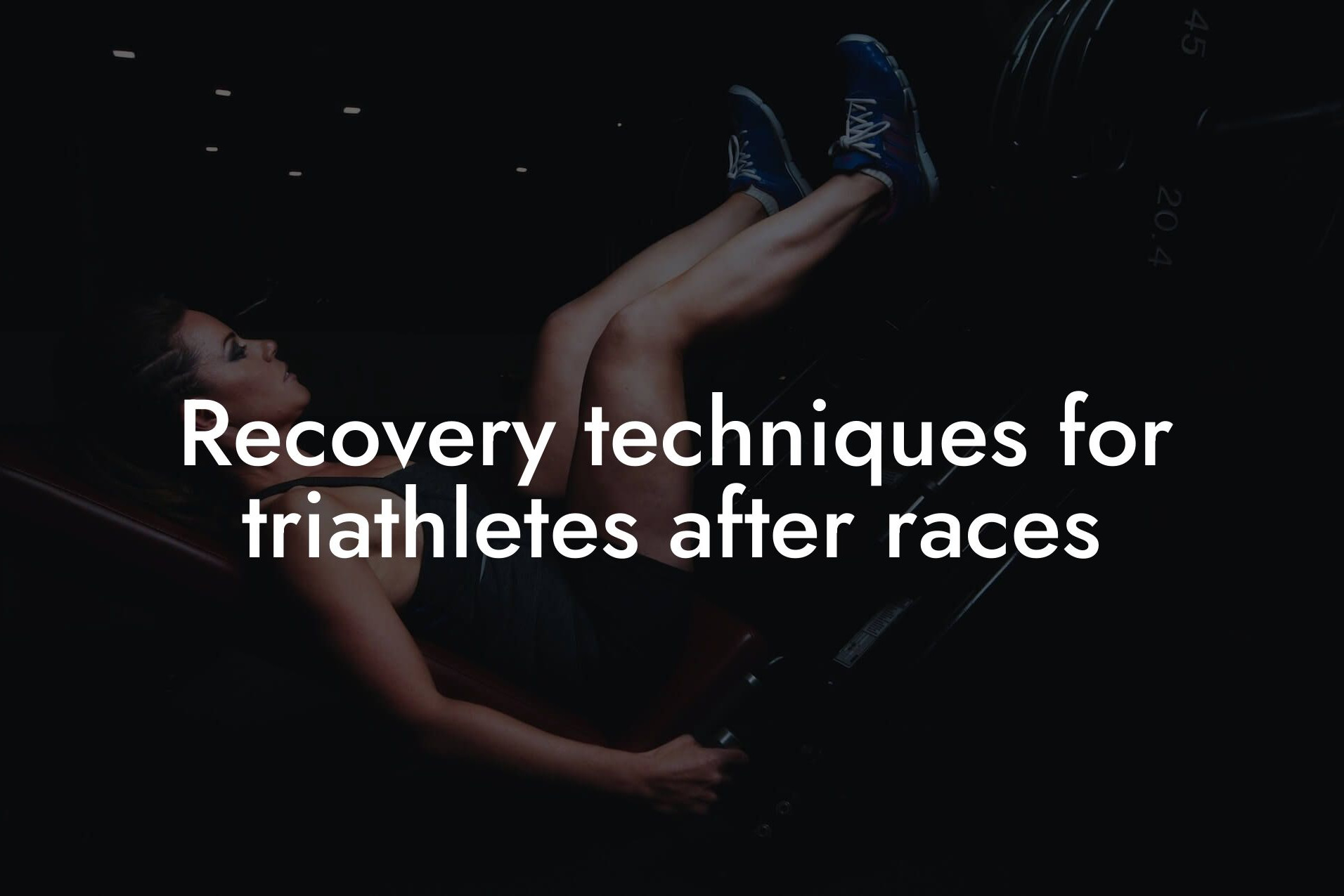As a triathlete, you understand the importance of optimizing your physical performance to achieve success in your sport. One crucial aspect of this is monitoring your overall health, including your body composition, bone density, and muscle mass. Dual-Energy X-ray Absorptiometry (DEXA) scans have become a valuable tool in this endeavor, providing a comprehensive assessment of your body's composition and health. In this article, we'll delve into the benefits of using DEXA scans to monitor triathlete health and explore how they can help you take your performance to the next level.
Table of Contents
What is a DEXA Scan?
A DEXA scan is a non-invasive, painless medical imaging test that uses X-rays to measure bone density and body composition. The scan itself is quick, taking only about 10-15 minutes to complete, and is performed while you lie on a table. During the scan, two X-ray beams of different energy levels are passed through your body, measuring the absorption of each beam by different tissues. This information is then used to calculate your bone density, lean mass, fat mass, and other body composition metrics.
Benefits of DEXA Scans for Triathletes
DEXA scans offer several benefits for triathletes, including:
- Accurate body composition analysis: DEXA scans provide a precise measurement of your body fat percentage, lean mass, and bone density, allowing you to track changes over time and make informed training and nutrition decisions.
- Injury prevention: By monitoring bone density, DEXA scans can help identify early signs of osteoporosis or other bone-related issues, enabling you to take preventative measures to avoid injuries.
- Performance optimization: DEXA scans can help you identify areas for improvement in your training and nutrition, such as increasing muscle mass or reducing body fat, to enhance your overall performance.
How DEXA Scans Can Improve Triathlete Performance
By providing a detailed analysis of your body composition, DEXA scans can help you:
- Optimize your power-to-weight ratio: By monitoring changes in your lean mass and body fat, you can adjust your training and nutrition to achieve an optimal power-to-weight ratio, enhancing your cycling, running, and swimming performance.
- Enhance endurance: DEXA scans can help you identify areas for improvement in your muscle mass and body fat distribution, allowing you to optimize your endurance and stamina.
- Reduce injury risk: By monitoring bone density and body composition, DEXA scans can help you identify early signs of overtraining or muscle imbalances, enabling you to take preventative measures to avoid injuries.
What to Expect from a DEXA Scan
Before your DEXA scan, you'll typically be asked to:
- Remove any metal objects, such as jewelry or clothing with metal fasteners
- Wear comfortable, loose-fitting clothing
- Avoid eating or drinking for a few hours prior to the scan
During the scan, you'll lie on a table, and the DEXA machine will pass the X-ray beams through your body. The scan itself is painless and takes only a few minutes to complete.
Understanding Your DEXA Scan Results
After your DEXA scan, you'll receive a detailed report outlining your body composition and bone density metrics. Some key metrics to focus on include:
- Body fat percentage: This measures the percentage of your body composed of fat mass.
- Lean mass: This measures the mass of your muscles, bones, and other lean tissues.
- Bone density: This measures the density of your bones, which can indicate risk of osteoporosis or fractures.
- Visceral fat area: This measures the amount of fat in your abdominal cavity, which is linked to increased risk of chronic diseases.
How Often Should Triathletes Get a DEXA Scan?
The frequency of DEXA scans for triathletes depends on individual goals and needs. Some common scenarios include:
- Baseline scan: Getting a DEXA scan at the beginning of your training season to establish a baseline for your body composition and bone density.
- Periodic monitoring: Receiving regular DEXA scans (e.g., every 6-12 months) to track changes in your body composition and bone density over time.
- Performance optimization: Getting a DEXA scan to identify areas for improvement in your training and nutrition, and to track the effectiveness of your training program.
DEXA scans offer a valuable tool for triathletes seeking to optimize their performance and overall health. By providing a detailed analysis of body composition and bone density, DEXA scans can help you identify areas for improvement, track changes over time, and make informed training and nutrition decisions. At Tano Performance Group, we're committed to helping high-earning professionals like you achieve their physical goals and take their performance to the next level. Contact us today to learn more about our DEXA scan services and how they can benefit your triathlon training.
Frequently Asked Questions
What is a DEXA scan?
A DEXA (Dual-Energy X-ray Absorptiometry) scan is a non-invasive, painless medical test that measures bone density, body composition, and fat mass. It's commonly used to assess osteoporosis risk, monitor body fat percentage, and track changes in muscle mass and bone density over time.
Why are DEXA scans important for triathletes?
Triathletes, due to their high-intensity training and competition, are at risk of developing bone density issues, overtraining, and body composition imbalances. DEXA scans provide valuable insights into their overall health, allowing them to make data-driven decisions about their training, nutrition, and recovery strategies.
How does a DEXA scan work?
A DEXA scan uses low-level X-rays to measure the density of bones and soft tissue. The scan takes about 10-15 minutes to complete, and the results are typically available within 24-48 hours. The test is safe, painless, and doesn't require any special preparation.
What information does a DEXA scan provide?
A DEXA scan provides detailed information about bone density, body composition, and fat mass. This includes measurements of:
- Bone density (g/cm²)
- Body fat percentage (%)
- Lean mass (muscle mass, kg)
- Fat mass (kg)
- Visceral fat area (cm²)
- Regional body fat distribution (e.g., android, gynoid, and peripheral fat)
How often should triathletes get a DEXA scan?
It's recommended that triathletes get a DEXA scan every 6-12 months to monitor changes in their body composition and bone density. This frequency allows for early detection of any potential issues and enables data-driven adjustments to their training and nutrition plans.
What are the benefits of regular DEXA scans for triathletes?
Regular DEXA scans provide triathletes with a range of benefits, including:
- Early detection of bone density issues and osteoporosis risk
- Monitoring of body fat percentage and distribution
- Tracking of muscle mass and lean body mass
- Identification of overtraining and under-recovery
- Personalized nutrition and training plans
- Enhanced performance and recovery
Can DEXA scans help with injury prevention?
Yes, DEXA scans can help identify potential injury risks by detecting imbalances in body composition, bone density, and muscle mass. This information enables triathletes to take proactive steps to address these issues, reducing their risk of injury and improving overall performance.
How do DEXA scans compare to other body composition tests?
DEXA scans are considered the gold standard for measuring body composition and bone density due to their high accuracy and precision. While other tests, such as bioelectrical impedance analysis (BIA) and skinfold measurements, can provide some information, they may not be as comprehensive or accurate as DEXA scans.
Are DEXA scans safe?
Yes, DEXA scans are extremely safe and pose no significant risks. The test uses very low levels of radiation, equivalent to about 1/10th of a chest X-ray. Additionally, the scan is non-invasive and doesn't require any injections, medications, or other interventions.
How long does it take to get the results of a DEXA scan?
The results of a DEXA scan are typically available within 24-48 hours. The report will provide detailed information about bone density, body composition, and fat mass, along with recommendations for improvement and guidance on how to interpret the results.
Can I get a DEXA scan if I'm not a triathlete?
Absolutely! DEXA scans are not exclusive to triathletes. Anyone interested in monitoring their body composition, bone density, and overall health can benefit from a DEXA scan. This includes individuals with a range of fitness goals, from weight loss to muscle gain, as well as those seeking to improve their overall health and wellness.
How do I prepare for a DEXA scan?
No special preparation is required for a DEXA scan. You can eat and drink normally, and you don't need to fast or avoid any specific activities. However, it's recommended that you wear loose, comfortable clothing and avoid wearing any metal objects or jewelry that may interfere with the scan.
What is the cost of a DEXA scan?
The cost of a DEXA scan varies depending on the location, provider, and package options. On average, a DEXA scan can cost anywhere from $100 to $300. At Tano Performance Group, we offer competitive pricing and package deals for our clients.
Can I get a DEXA scan if I'm under 18 or over 65?
Yes, DEXA scans can be performed on individuals of all ages. However, for minors (under 18), parental consent is required, and the scan may need to be adapted to accommodate their age and size. For seniors (over 65), DEXA scans can be particularly useful for monitoring osteoporosis risk and tracking changes in body composition.
How do I interpret the results of a DEXA scan?
Interpreting the results of a DEXA scan requires a good understanding of the metrics and what they mean. At Tano Performance Group, our experts will guide you through the results, providing personalized recommendations and guidance on how to use the data to improve your health and performance.
Can I use a DEXA scan to track my progress over time?
Absolutely! DEXA scans are an excellent tool for tracking changes in body composition, bone density, and fat mass over time. By comparing results from multiple scans, you can monitor your progress, identify areas for improvement, and make data-driven decisions about your training and nutrition plans.
Are DEXA scans covered by insurance?
Insurance coverage for DEXA scans varies depending on the provider and the specific circumstances. In some cases, insurance may cover the cost of a DEXA scan, especially if it's medically necessary (e.g., for osteoporosis risk assessment). However, for athletic performance or general health monitoring, insurance coverage may not be available.
Can I get a DEXA scan at Tano Performance Group?
Yes, Tano Performance Group offers DEXA scans as part of our comprehensive health and performance assessment packages. Our experienced team will guide you through the process, provide personalized recommendations, and help you achieve your health and fitness goals.
How do I schedule a DEXA scan at Tano Performance Group?
To schedule a DEXA scan at Tano Performance Group, simply contact us through our website or by phone. Our team will be happy to answer any questions, provide more information, and schedule a convenient appointment for you.
Here are some related articles you might love...
- The importance of body composition in triathlon performance
- Bone density and injury prevention for triathletes
- Recovery techniques for triathletes after races
- Balancing training for swimming, cycling, and running
- Nutrition strategies for triathlon training and competition
- Strength training for triathletes to improve overall performance
- Off-season training strategies for triathletes
- The role of lean muscle mass in triathlon events
- Reducing body fat for better endurance in triathlons
Zak Faulkner
Zak Faulkner is a leading authority in the realm of physical health and body composition analysis, with over 15 years of experience helping professionals optimise their fitness and well-being. As one the experts behind Tano Performance Group, Zak has dedicated his career to providing in-depth, science-backed insights that empower clients to elevate their physical performance and overall health.
With extensive knowledge of DEXA technology, Zak specializes in delivering comprehensive body assessments that offer precise data on body fat, muscle mass, bone density, and overall physique. His expertise enables individuals to make informed decisions and achieve their fitness goals with accuracy and confidence. Zak’s approach is rooted in a deep understanding of human physiology, combined with a passion for helping clients unlock their full potential through personalised strategies.
Over the years, Zak has earned a reputation for his commitment to excellence, precision, and client-focused service. His guidance is trusted by top professionals who demand the best when it comes to their health. Whether advising on fitness programs, nutritional strategies, or long-term wellness plans, Zak Faulkner’s insights are a valuable resource for anyone serious about taking their health and fitness to the next level.
At Tano Performance Group, Zak continues to lead our Content Team revolutionising how professionals approach their physical health, offering unparalleled expertise that drives real results.




